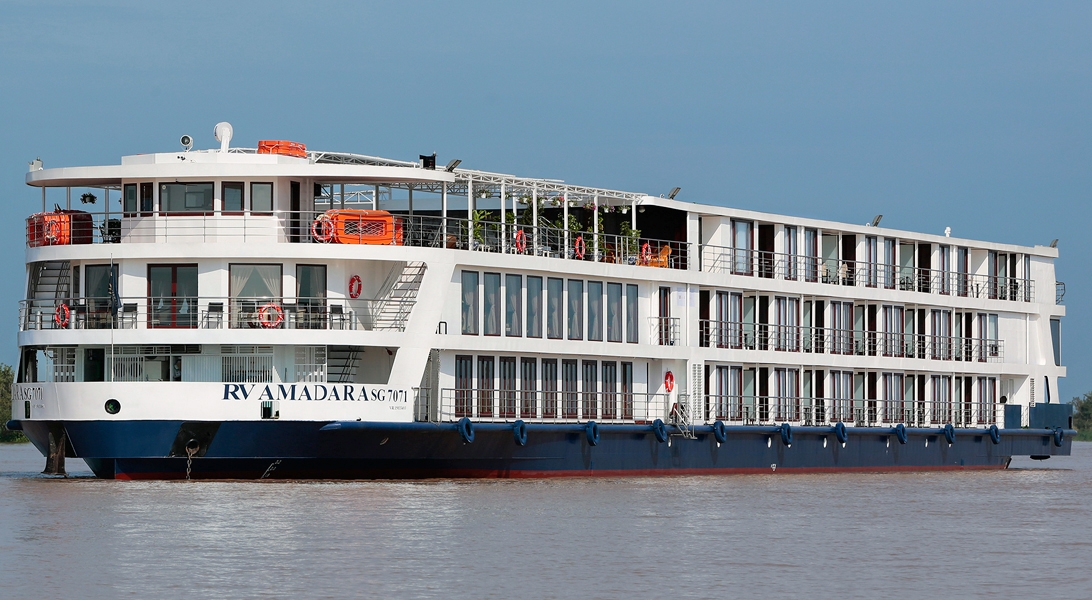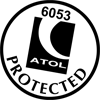| | | | | Arrive | Depart |
| 31st31 | AugAug | 202626 | Siem Reap, Cambodia, embark on the AmaDara | | |
SIEM REAP – KAMPONG CHAM, CAMBODIA – EMBARKATION. Transfer via motorcoach from Siem Reap to the AmaDara in Kampong Cham for your seven-night cruise. Later, join fellow guests for an evening Welcome Dinner. (L,D) *All cruise only guests should meet us at Sofitel Angkor hotel in Siem Reap at 8:00 am on Embarkation day to join the transfer to the ship in Kampong Cham. We recommend that you fly into Siem Reap at least one day prior to embarkation; please inquire about important arrival arrangements prior to your cruise. |
| 31st31 | AugAug | 202626 | Kampong Cham, Cambodia | | |
| 1st01 | SepSep | 202626 | Angkor Ban, Cambodia | | |
ANGKOR BAN - OKNHATEY. During the morning, go on a walking tour to Angkor Ban, one of the few villages in Cambodia that was not destroyed under the Khmer Rouge regime in the 1970s. Here people still live in their traditional wooden abodes and keep their old cultural traditions alive. Hundreds of wooden houses stand intact on stilts, shaded with banana trees, among the hustle and bustle of the daily agricultural on-going of the local villagers. After visiting here, the ship sails to Oknhatey or “Silk Island,” located on the lush banks of the Mekong River. This island is known for its rich tradition of silk weaving. While here, you’ll visit a local elementary school and observe traditional silk weaving an art that has been preserved for centuries. Your ship moors in Oknhatey village. (B,L,D) *Based on seasonality, the port of Angkor Ban may be inaccessible from August - September. During this time, Wat Hanchey will replace Angkor Ban as the port of call. |
| 1st01 | SepSep | 202626 | Oknha Tey Village, Cambodia | | |
| 2nd02 | SepSep | 202626 | Oknha Tey Village, Cambodia | | |
PHNOM PENH. Your cruise continues to sail to Phnom Penh, the capital of Cambodia. This morning’s excursion takes you to the highlights of Phnom Penh, followed by a visit to the Royal Palace, the spectacular Silver Pagoda and the National Museum, which has an outstanding collection of Khmer crafts. Alternatively, you may wish to shop for unique treasures at the bustling, yellow-colored Central Market after your visit to the Royal Palace. In the afternoon, prepare for a moving visit to Cambodia’s infamous Killing Fields and the Khmer Rouge’s grim Tuol Sleng S21 detention center (Genocide Museum). After returning to the ship, enjoy Khmer folk dancing performed by local children in the Saigon Lounge. (B,L,D) |
| 2nd02 | SepSep | 202626 | Phnom Penh, Cambodia | | |
Phnom Penh, Cambodia’s busy capital, sits at the junction of the Mekong and Tonlé Sap rivers. It was a hub for both the Khmer Empire and French colonialists. On its walkable riverfront, lined with parks, restaurants and bars, are the ornate Royal Palace, Silver Pagoda and the National Museum, displaying artifacts from around the country. At the city’s heart is the massive, art deco Central Market. |
| 3rd03 | SepSep | 202626 | Oudong, Cambodia | | |
PHNOM PENH - OUDONG. The morning excursion takes you to Oudong, Cambodia’s former royal capital from the early 17th century until 1866. Today, Oudong is a place of pilgrimage for Cambodians. While here, be treated to a memorable Buddhist Blessing Ceremony at a monastery. You may walk around Oudong’s monastery or take an active walking tour to see panoramic views of the Oudong plain. Later in the day, experience Phnom Penh via a tuk tuk ride and be enchanted by the city's French Colonial architecture and tree-lined boulevards set amidst monumental Angkorian architecture, or continue your visit to Wat Phnom, a famous landmark of Phnom Penh. (B,L,D) |
| 3rd03 | SepSep | 202626 | Phnom Penh, Cambodia | | |
Phnom Penh, Cambodia’s busy capital, sits at the junction of the Mekong and Tonlé Sap rivers. It was a hub for both the Khmer Empire and French colonialists. On its walkable riverfront, lined with parks, restaurants and bars, are the ornate Royal Palace, Silver Pagoda and the National Museum, displaying artifacts from around the country. At the city’s heart is the massive, art deco Central Market. |
| 4th04 | SepSep | 202626 | Cruising | | |
| 5th05 | SepSep | 202626 | Tân Châu, Vietnam | | |
TAN CHAU. Enjoy a visit to Tan Chau, a small Mekong River town unspoiled by tourism. Be treated to an authentic experience on a traditional “xe-loi” (trishaw) ride around the town, with stops at silk-making and rattan mat workshops. You may also choose the trishaw ride with visits to craftsmen’s workshops, followed by an active walking tour to “Evergreen Island.” As a third alternative, explore the stunning Mekong Delta on an intimate tour through Vietnam's Tra Su Forest and Sanctuary. Board a traditional sampan boat and glide through this diverse ecosystem that includes more than 70 species of birds, including the painted stork and oriental darter, and lush greenery encompassing majestic cajuput trees, lotuses, water lilies and a carpet of bright green moss in the rainy season that appears to glow as you gently drift through it. Later in the day, cruise to Sa Dec. (B,L,D) *Please Note: Tra Su Forest visit is capacity controlled. |
| 6th06 | SepSep | 202626 | Sa Déc, Vietnam | | |
SA DEC – CAI BE. Once ashore in Sa Dec, tour the town where French writer Marguerite Duras spent many years in her youth. Visit a fascinating local market and a colorful Cao Dai Temple, home to the unique religion of Caodaism in Southern Vietnam, a fusion of Buddhism, Christianity, Islam, Hinduism and Confucianism. Alternatively, you may wish to tour the house of Mr. Huynh Thuy Le, Duras’s Chinese paramour, on whom her prize-winning novel “The Lover” is said to be based. The house itself now serves as a small museum showcasing a blend of architectural styles, original furniture and family memorabilia. In the afternoon, you will have an opportunity to visit candy and rice paper making workshops, or you may instead choose to add an active walking tour to the historic Kiet Old House and cap the day off with a festive Farewell Dinner on board. (B,L,D) |
| 6th06 | SepSep | 202626 | Cái Bè, Vietnam | | |
| 7th07 | SepSep | 202626 | My Tho, Vietnam | | |
DISEMBARKATION – MY THO – HO CHI MINH CITY. Your cruise concludes in My Tho Port, where you’ll disembark and transfer via motorcoach from My Tho Port to Ho Chi Minh city. (B) *All guests will be transferred from the ship to Sofitel Saigon Plaza in Ho Chi Minh City. We recommend that you schedule your onward flight to depart Ho Chi Minh after 2:30 pm today to avoid potential missed connections. |
| 7th07 | SepSep | 202626 | Ho Chi Minh City, Vietnam, disembark the AmaDara | | |
Romantically referred to by the French as the Pearl of the Orient, Ho Chi Minh City today is a super-charged city of sensory overload. Motorbikes zoom day and night along the wide boulevards, through the narrow back alleys and past vendors pushing handcarts hawking goods of all descriptions. Still called Saigon by most residents, this is Vietnam's largest city and the engine driving the country's current economic resurgence, but despite its frenetic pace, it's a friendlier place than Hanoi and locals will tell you the food—simple, tasty, and incorporating many fresh herbs—is infinitely better than in the capital.This is a city full of surprises. The madness of the city's traffic—witness the oddball things that are transported on the back of motorcycles—is countered by tranquil pagodas, peaceful parks, quirky coffee shops, and whole neighborhoods hidden down tiny alleyways, although some of these quiet spots can be difficult to track down. Life in Ho Chi Minh City is lived in public: on the back of motorcycles, on the sidewalks, and in the parks. Even when its residents are at home, they're still on display. With many living rooms opening onto the street, grandmothers napping, babies being rocked, and food being prepared, are all in full view of passersby.Icons of the past endure in the midst of the city’s headlong rush into capitalism. The Hotel Continental, immortalized in Graham Greene's The Quiet American, continues to stand on the corner of old Indochina's most famous thoroughfare, the rue Catinat, known to American G.I.s during the Vietnam War as Tu Do (Freedom) Street and renamed Dong Khoi (Uprising) Street by the Communists. The city still has its ornate opera house and its old French city hall, the Hôtel de Ville. The broad colonial boulevards leading to the Saigon River and the gracious stucco villas are other remnants of the French colonial presence. Grisly reminders of the more recent past can be seen at the city's war-related museums. Residents, however, prefer to look forward rather than back and are often perplexed by tourists' fascination with a war that ended 40 years ago.The Chinese influence on the country is still very much in evidence in the Cholon district, the city's Chinatown, but the modern office towers and international hotels that mark the skyline symbolize Vietnam's fixation on the future. |

